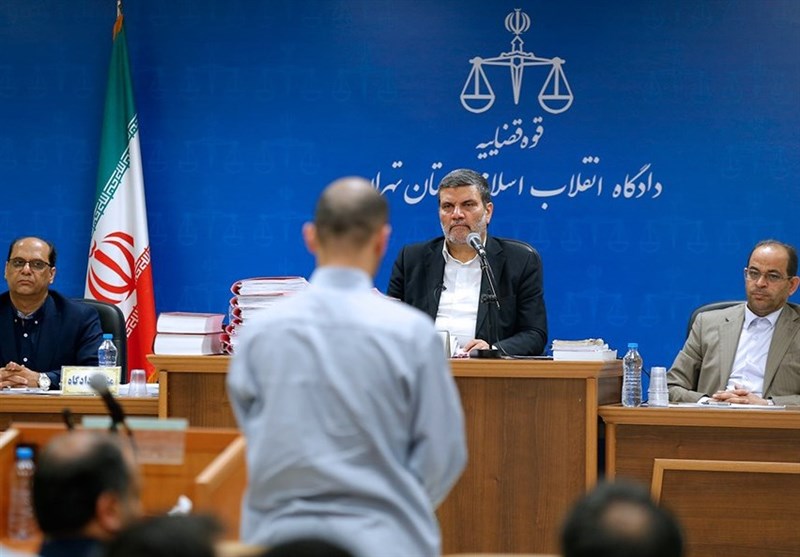FRESH AIR
Criticism of Brunei over homosexuality laws very warranted, but let’s not forget Iran
April 5, 2019 | Judy Maynard

Calls by big name celebrities like George Clooney and Elton John to boycott London’s Dorchester and other luxury hotels owned by the Sultan of Brunei have helped focus international attention on the sultanate’s implementation this week of capital punishment for homosexual sex. Homosexuality is already illegal and punishable by up to ten years imprisonment in Brunei.
Sharia penalties, including death for a number of offences, came into force in 2014 in the tiny Southeast Asia state, but due to an international outcry the implementation of some measures was delayed. However, the punishment of stoning to death for adultery and homosexual sex has now come into effect. The UN has described the laws as cruel and inhumane.
But Brunei is not the only country where gay sex is punishable by death – Saudi Arabia, Yemen and Mauritania are other examples. The most notorious, however, is probably Iran where, according to Amnesty International, more than 5,000 gay and lesbian people have been executed since the revolution in 1979. Numbers are difficult to estimate due to the secrecy surrounding executions. Those cases that have been reported in the media are horrendous.
According to Alireza Nader, CEO of the Washington DC-based research and advocacy organisation New Iran, Iran’s LGBT community has lived in terror for the past 40 years. “Next time [Iran’s] Foreign Minister Zarif speaks in Washington,” he said, “the host and audience should ask him why his regime is one of the top executioners of gays in the world.”
In 2007 a visiting Iranian politician, Mohsen Yahyavi, told British MPs that “Homosexuals deserve to be tortured and executed”. Two months earlier, then Iranian President Mahmoud Ahmadinejad had been widely ridiculed for saying there were no gays in his country.
LGBTQI rights groups say Iran often executes gay people for consensual sex by convicting them on false charges for more serious crimes. This would seem to be borne out by a report from the US Department of State in 2011 describing the case of three men who were executed for sodomy:
While the circumstances of the case remained unclear at year’s end, the fact that they were executed on sodomy charges alone, and not sodomy by coercion or rape, which was normally how sodomy was charged, was significant. It was also the first case in many years in which the only declared charge was sodomy and not combined with other criminal acts, such as rape and armed robbery or national security crimes.
An example of this ambiguity arose in 2005, when two teenagers were publicly hanged in the Iranian city of Mashhad. According to the official Iranian version, this was for the rape of a 13-year-old boy, however LGBTQI rights groups in the West claimed it was for consensual homosexual intercourse. What is unambiguous is the fact that both of those executed were minors.
In 2007, Makwan Mouloudzadeh, 20, was hanged for raping three boys when he was 13. At his trial all the witnesses retracted their pre-trial testimonies, claiming they had been given under duress. The accused said that his confession, too, had been made under coercion and he pleaded not guilty. He was nevertheless found guilty and sentenced to death. The sentence was upheld on appeal. Following international uproar and a detailed petition submitted to the Iranian Chief Justice, the latter described the death sentence as a violation of Islamic teachings, the religious teachings of high-ranking clerics, and the law of the land. The case was returned for review, but in defiance of the Chief Justice’s ruling the review judges ratified the original sentence and ordered local authorities to proceed with the execution.
Hassan Afshar, 19, was executed in 2016 for supposedly raping another boy. He was only 17 at the time of the alleged crime, which he denied, maintaining that the sexual acts were consensual. At his trial he had no access to a lawyer. Informed of his death penalty seven months after his conviction, he was executed in July even though officials had promised to review his case in September. His hanging took place behind closed doors without his family’s knowledge.
In January this year, an unidentified 31-year-old man was publicly hanged for homosexual intercourse and kidnapping, according to the state-controlled Iranian Students’ News Agency. Again, it is difficult to shed any light on the circumstances of the case.
Brunei certainly deserves to be condemned for its discriminatory laws, and every form of pressure should be applied to prevent their implementation. But we must not forget other countries with similarly notorious policies, especially Iran, where anti-gay laws may have already cost thousands of innocent people their lives.
Tags: Iran
RELATED ARTICLES

‘Optimism’ for Hamas to ‘exile’ their power and create a permanent ceasefire with Israel: Joel Burnie on Sky News

Australian government’s response to Iran-Israel conflict ‘disappointing’: Paul Rubenstein on Sky News

UNRWA feeds the ‘Palestinian delusion’ of no Jewish state: Dr Einat Wilf on Sky News




















